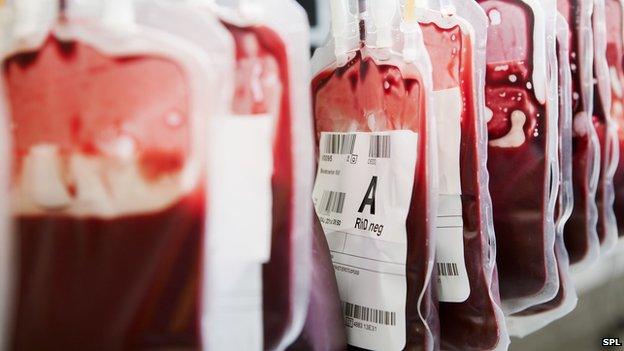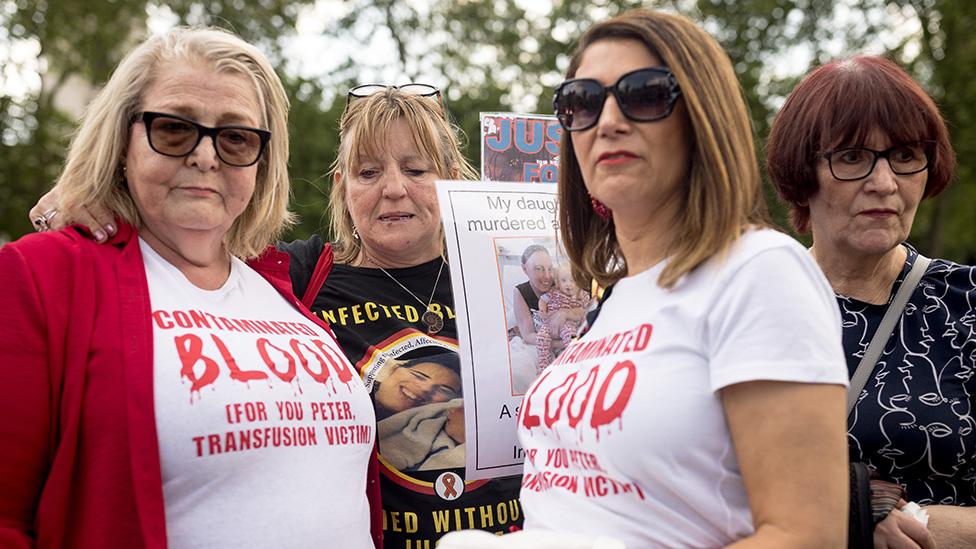Contaminated blood inquiry: Some patients used as 'guinea pigs'
- Published
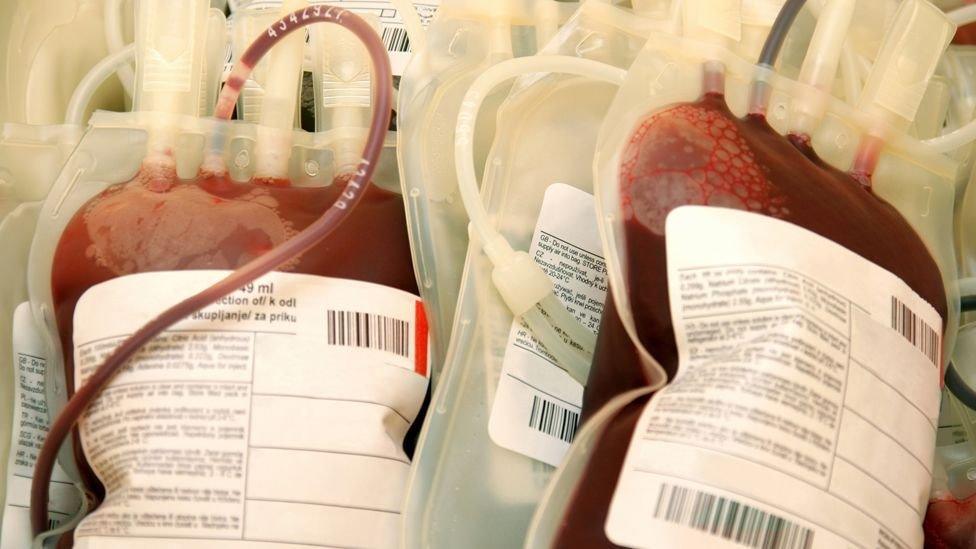
Infected blood donations were pooled and used in the 1970s and 1980s for treatments
A public inquiry into the infected blood scandal has been told some patients were used as "guinea pigs" at Belfast's Royal Victoria Hospital.
The inquiry is looking at how haemophilia patients across the UK were treated with Hepatitis C infected blood or HIV in the 1970s and 1980s.
About 5,000 people, including 99 from Northern Ireland, were infected.
The inquiry heard testimonies from relatives and survivors at hearings in Belfast in 2019.
It has now resumed its focus on Northern Ireland with an examination of correspondence including exchanges between senior medical figures around the time of the scandal.
Among the correspondence presented to the inquiry this week was a letter, dated 1988, sent by Dr Elizabeth E Mayne, consultant/director at the Department of Haematology in the Royal Victoria Hospital, to Professor Ludlam at the Royal Infirmary in Scotland.
The letter was part of discussions about a potential switch between an NHS product and a commercial product, Profilate Factor 8.
Dr Mayne explained that "complications may arise with this product or indeed a safer product may become available".
She added: "I am happy for us to try this arrangement as long as the treatment of the children here and the small number of other patients is safeguarded."
She concluded "It would be interesting to see the reactions of the patients to this change over and to see if the number of units consumed is reduced."
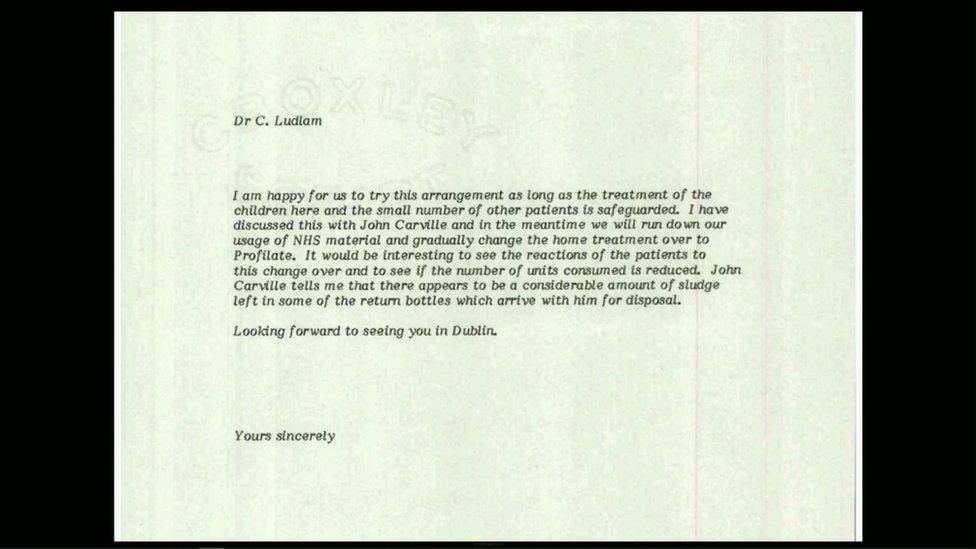
The letter sent by Dr Elizabeth E Mayne to Professor Ludlam at the Royal Infirmary in Scotland.
After the letter was read into the record of the inquiry, the chairman, Sir Brian Langstaff, said: "There is also the implicit suggestion there that the patients will not have been asked in advance.
"It is going to be given to them and they wait to see what the reaction is."
Counsel to the inquiry, Jenni Richards QC, replied "Yes, there doesn't appear to have been an element of choice."
Sir Brian responded: "Yes, there is an element of using the patients as, to an extent, guinea pigs. I don't mean in the sense of having a different treatment but in the sense of having a different product."
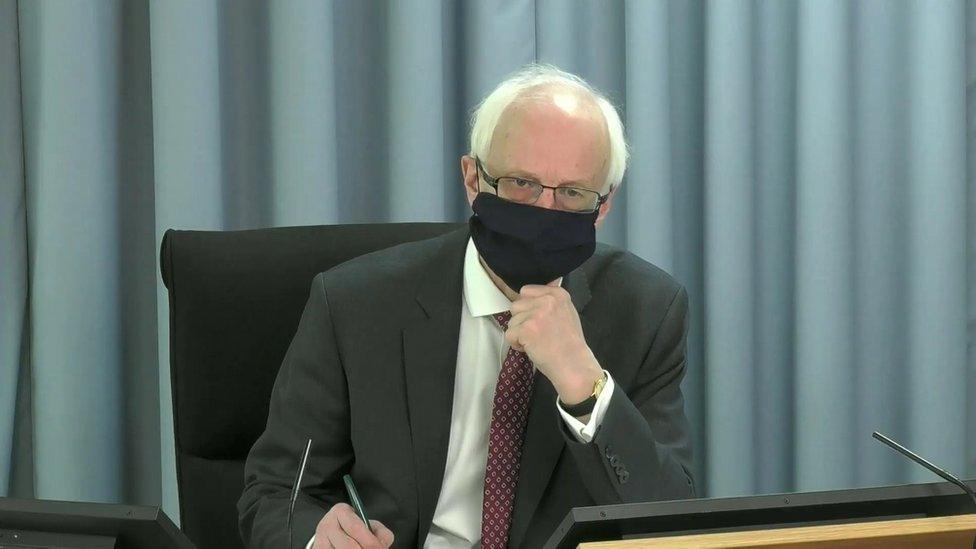
The inquiry's chair Sir Brian Langstaff at Wednesday's sitting
Survivors in Northern Ireland, including Paul Kirkpatrick, have been observing proceedings remotely this week.
He said: "It's been very difficult and sobering listening to the last couple of days. The inquiry uncovered a lot of evidence and followed up on a lot of different queries that came out of the evidence in Belfast in 2019.
"So, it was very difficult to listen to."
Mr Kirkpatrick, who is co-chair of Friends and Families of Haemophilia NI, was infected with Hepatitis C during the scandal in the 1970s.
He told BBC News NI that he agrees that some patients here were used as "guinea pigs" and added that it's "quite an emotional term to use and the chair doesn't use those terms lightly".
At the time of the scandal, the UK was struggling to keep up with demand for the Factor VIII blood clotting treatment, so supplies were imported from the US.
But much of the human blood plasma used to make it came from donors such as prison inmates and drug users who sold their blood.
Those groups were at higher risk of blood-borne viruses.
- Published1 March 2021
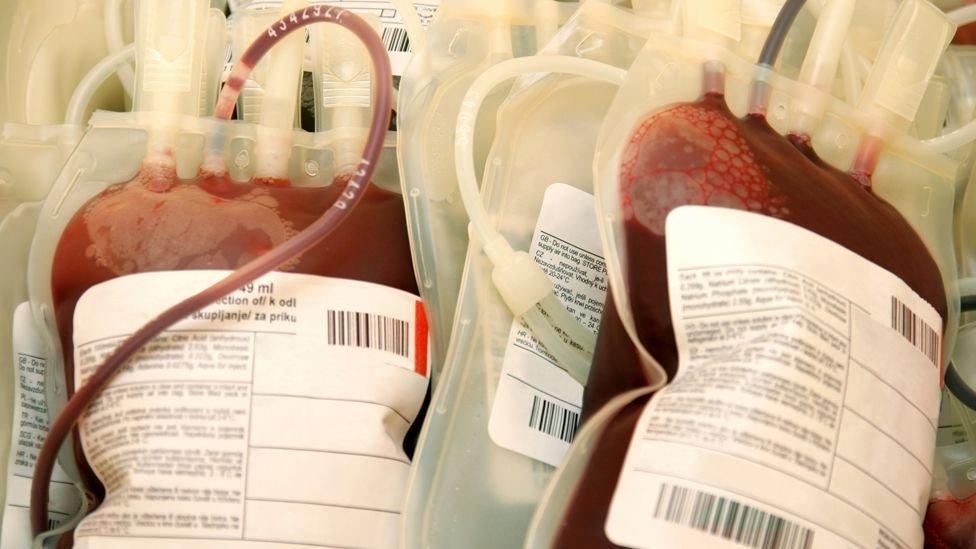
- Published31 August 2020
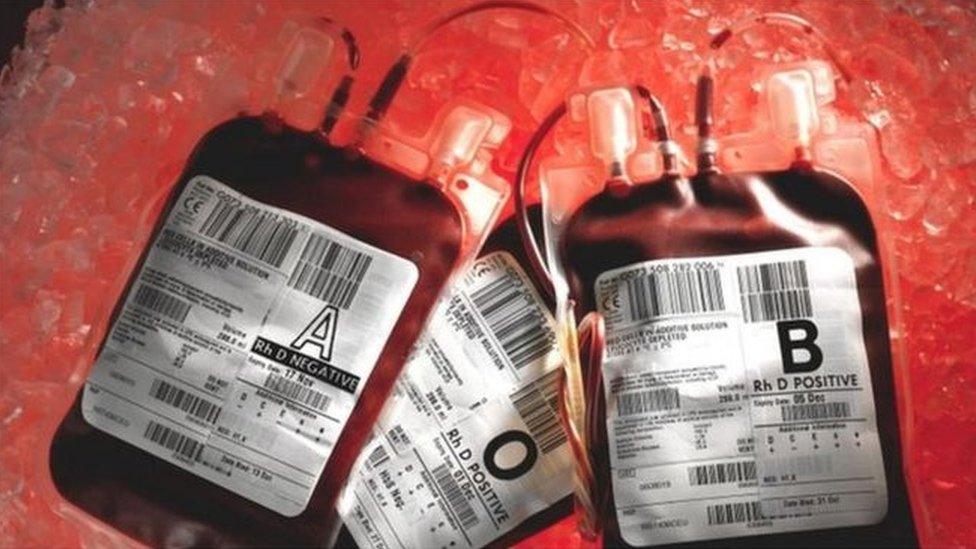
- Published2 August 2018
